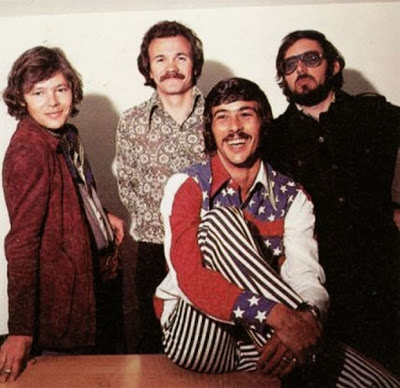Live shows and concerts have all but stopped. Bars and clubs have shut down. And guest appearances on television and out-of-town tours will have to wait longer … indefinitely.
But if there’s anything remotely positive that could be gleaned from the disruption caused by the COVID-19 pandemic, “this unscheduled and forced sabbatical,” Moy Ortiz said, could be used by some musicians to revisit shelved passion projects, or perhaps simply reflect on the reasons they chose to enter the industry in the first place.
“It’s an opportunity to listen to music deeply and not passively—like the way we used to before music became dependent on visuals and marketing. Unhurried and deep listening is a beautiful luxury one can enjoy during this unusual period,” Moy, a member and the musical director of the vocal ensemble The CompanY, told the Inquirer.
“It could allow music artists to be experimental and break free from their usual creative walls. It could also allow them to discover music, fellow musicians or unfamiliar technology,” he said.
As cliché as it may sound, music—or the arts, in general—is “food for the soul.” “It nourishes one’s spirit and fills the well of humanity. All of man’s higher needs are fed by the arts,” he explained. “Like any art form, music reflects one’s hopes, fears, dreams and desires.”
But in times of struggle, music takes on other crucial purposes.
“People consume music to comfort one’s weary and frayed nerves; to allay one’s fears, to strengthen one’s faltering resolve, to appreciate milestones, to worship and adore the Divine,” pointed out Moy, who, in times of distress, listens to music by artists from the Ateneo-based Jesuit Communications Foundation.
“I also listen to a lot of 1970s soft rock—Bread, David Gates and The Carpenters. It transports me to a time when life was simpler, gentler and kinder. In the evening, I listen to a lot of cool jazz: Chet Baker, Miles Davis, Chris Botti and that amazing playlist called “Peaceful Piano American Songbook,” he related. “It’s a beautiful way to end the day.”
Rick Price is one such music artist who has been maximizing his downtime, by working on new music in his home studio in Nashville, Tennessee. “I’m so grateful to have music in my life. It’s the language of the soul—and now, it’s medicine to us all,” the Australian singer-songwriter of “Heaven Knows” fame said.
He admitted that it has been a “concerning” and “alarming” time for everyone affected by the outbreak. What kind of music does he listen to in moments like this? “I’m a fan of all types of music, so I don’t go for any one specific style,” Rick related. “But classical music is certainly gentle on the senses.”
Indie artist Jace Roque, on the other hand, took this opportunity to revive his online series, “The Bedroom Sessions.” “I have been coping with the stress by letting my creative juices flowing. ‘Bedroom’ is a show on my Facebook and YouTube pages, where I perform original and cover songs from my bedroom,” he said.
True to the kind of music he creates, the electronic pop singer listens to EDM to brighten up his mood. Art, he said, provides a temporary escape from all the chaos and fear.
“I also listen to lots of inspirational songs, like ‘Never Alone’ by Tori Kelly and ‘Hold You Up’ by Shane Harper from the movie ‘God’s Not Dead,’ said Jace, who has been taking part in COVID-19-related community efforts. He also donates materials for the crafting of do-it-yourself personal protective equipment for front-liners.
“I also listen to my songs to remind me of how far I have come, and that I have so much to live and be thankful for,” Jace added.
“Music provides comfort. Expressing one’s self through any form of art gives us an emotional outlet. In such trying times, it is important that we stay grounded. We must hope and pray for the best. Believe that we can get through this together,” he said.
During the first week of the quarantine, seasoned theater artist Audie Gemora was admittedly “climbing the walls,” as he looked for outlets to express himself. Later on, he figured that he could use this time off to bond with his son over music.
“I got my son to learn one of the songs from my “Playlist” album and sang it as a duet. Then, I taught him a song which we shared in an online class on song interpretation, which I conducted for a fundraising initiative by Open House for the benefit of displaced colleagues in the performing arts industry,” he related. “It helps to use your talent for others.”
One night, Audie recalled, he woke up feeling “oppressed,” which prompted him to open his Spotify app and play songs of praise and worship. “God inhabits the praise of His people,” said the singer, who underscored the arts’ power to “connect human beings.”
“Art transcends language, ideology, religion and culture. It’s the language of the soul,” he explained. “Music, stories, images, poetry, movement permeate body, mind, soul and touch the spirit.”
